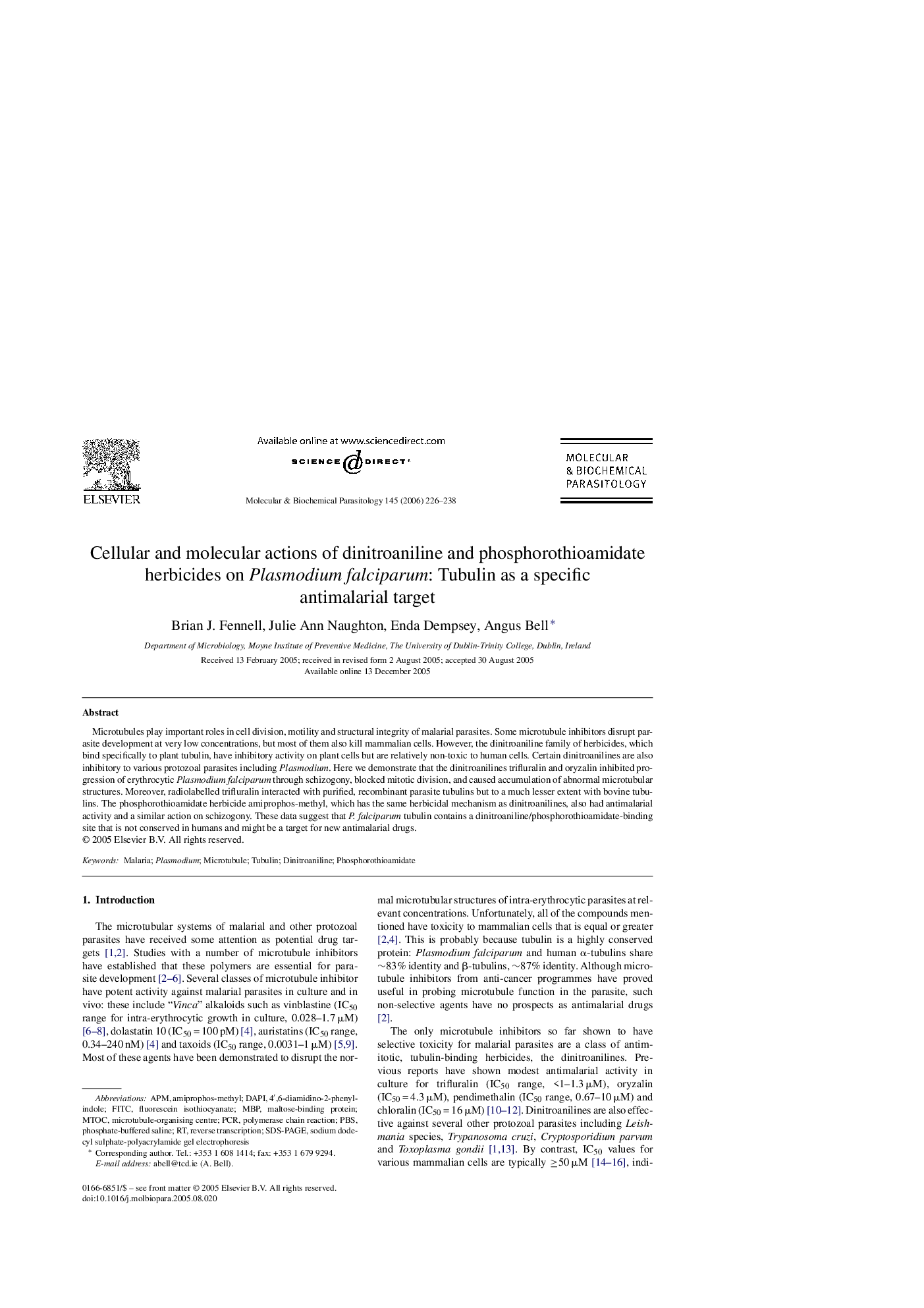| Article ID | Journal | Published Year | Pages | File Type |
|---|---|---|---|---|
| 2830448 | Molecular and Biochemical Parasitology | 2006 | 13 Pages |
Microtubules play important roles in cell division, motility and structural integrity of malarial parasites. Some microtubule inhibitors disrupt parasite development at very low concentrations, but most of them also kill mammalian cells. However, the dinitroaniline family of herbicides, which bind specifically to plant tubulin, have inhibitory activity on plant cells but are relatively non-toxic to human cells. Certain dinitroanilines are also inhibitory to various protozoal parasites including Plasmodium. Here we demonstrate that the dinitroanilines trifluralin and oryzalin inhibited progression of erythrocytic Plasmodium falciparum through schizogony, blocked mitotic division, and caused accumulation of abnormal microtubular structures. Moreover, radiolabelled trifluralin interacted with purified, recombinant parasite tubulins but to a much lesser extent with bovine tubulins. The phosphorothioamidate herbicide amiprophos-methyl, which has the same herbicidal mechanism as dinitroanilines, also had antimalarial activity and a similar action on schizogony. These data suggest that P. falciparum tubulin contains a dinitroaniline/phosphorothioamidate-binding site that is not conserved in humans and might be a target for new antimalarial drugs.
